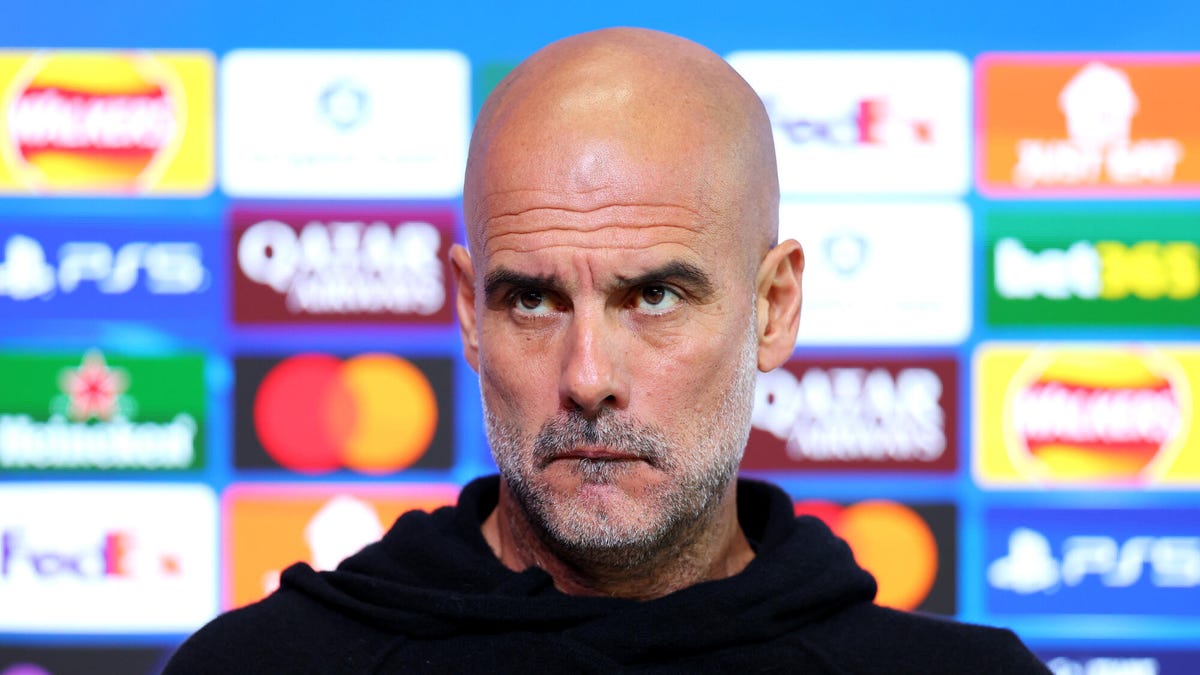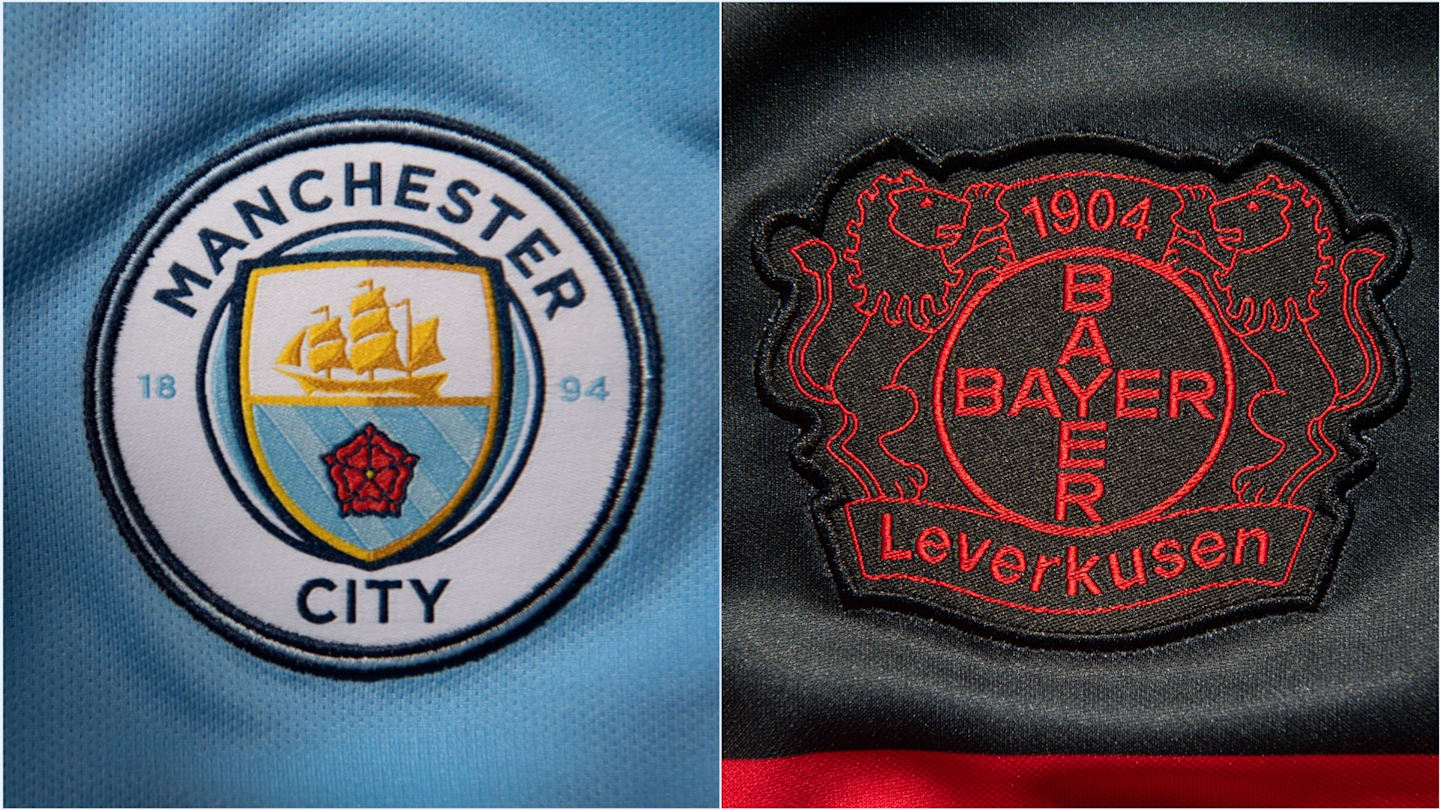The Gilded Cage on the Pitch
Another Night, Another Foregone Conclusion
So, Manchester City plays Bayer Leverkusen. Great. Another Champions League night under the lights, another opportunity for the pundits to drool over Pep Guardiola’s tactical genius as he reaches his 100th European game with the club. They’ll talk about passing triangles and inverted full-backs and all the other jargon that makes this feel like a legitimate sporting contest. But it’s not. Let’s call it what it is: a performance. A well-funded, beautifully choreographed piece of theater designed to make you forget what’s really going on behind the curtain. Because while the ball rolls on the perfectly manicured grass of the Etihad, a stadium built on a foundation of convenient sponsorships and questionable cash infusions, the real game is being played in lawyers’ offices and boardrooms, far from the prying eyes of the fans who pay for the privilege of being part of the spectacle.
This isn’t a football match. It’s a public relations exercise. Every goal scored, every slick passing move, is just another layer of gold paint slapped onto a rotten structure. Leverkusen will show up and play their hearts out, a genuine club with a genuine history, and they’ll be cast as the plucky underdog. And the narrative will be so compelling, so simple, that millions will buy into it. They’ll forget to ask the hard questions. They’ll forget to follow the money. Because that’s the entire point of this whole charade. To distract you. To entertain you into submission. The machine needs you to believe this is real sport. It needs you to care about the score. It’s all smoke and mirrors.
And Guardiola is the master illusionist, the front man for the entire operation. One hundred games. A century of matches where he’s been able to operate with a financial safety net so vast it renders the very concept of ‘competition’ laughable. We are asked to celebrate this milestone as if it were earned under the same constraints as any other manager. It wasn’t. Not even close. This milestone is a testament not to genius, but to the brute force of unlimited capital. It marks 100 opportunities to field a team assembled with funds that have been under intense scrutiny for the better part of a decade. So, as you tune in on Paramount Plus, remember what you’re really watching. You’re not watching a simple game of soccer. You’re watching the most expensive and elaborate sportswashing project in human history flex its muscles on the world’s biggest stage.
The Architect and the 115 Elephants in the Room
More Than Just Allegations
You can’t talk about Manchester City without talking about the numbers. Not the score, not the possession stats, but the one number that truly matters: 115. One hundred and fifteen alleged breaches of the Premier League’s financial regulations, hanging over the club like a guillotine. This isn’t some minor bookkeeping error. This is a decade-spanning list of accusations that strike at the very heart of the club’s modern identity, suggesting a systemic effort to circumvent the rules that are supposed to ensure a level playing field. And what has been the consequence so far? Nothing. A deafening silence. Years of legal wrangling and procedural delays while the club continues to spend, to dominate, to win trophies that may one day be tainted with the asterisk of history.
The entire project, the entire Guardiola era, is built on this questionable foundation. But the machine keeps rolling. Because the powers that be, from UEFA to the Premier League, seem utterly terrified of actually holding them to account. They slapped them with a two-year ban from European competition, a decision that felt momentous, only to see it overturned by the Court of Arbitration for Sport on a technicality—some charges were deemed too old. A slap on the wrist doesn’t even begin to describe it. It was an invitation to carry on. It was a green light for any nation-state with deep enough pockets to buy a seat at the top table of European football and bend the rules to their will. The system didn’t just fail; it actively protected the very entity it was supposed to regulate. What a joke.
And in the middle of it all stands Pep. The genius. The philosopher-king of modern football. But how much of that genius is pure, and how much is simply the product of an environment where financial constraints are a concept for other, lesser clubs? He’s a brilliant coach, nobody denies that. But his entire top-flight career—Barcelona, Bayern Munich, Manchester City—has been spent at the helm of clubs with colossal, overwhelming financial superiority over their domestic rivals. He has never had to build from scratch. He has never had to sell his best player to survive. He has never had to manage a budget. He is the greatest manager the world has ever seen… if you have a state-sponsored, unlimited budget. His 100th game isn’t a celebration of loyalty or tactical evolution under pressure. It’s a monument to what money, and a whole lot of it, can buy: sustained, crushing, and, I would argue, deeply artificial dominance.
The Soul of the Game is Not for Sale, It’s Been Sold
Where Do We Go From Here?
So what does a match like City vs. Leverkusen even mean anymore? In a world where financial power has completely decoupled from sporting merit, the result feels secondary. The outcome was decided years ago, when the money started flowing in, when the first cleverly disguised sponsorship deal was signed. This is the new reality of football. It’s a playground for oligarchs and nation-states, a tool for geopolitical soft power. The romance is dead. The idea that any club can rise up through hard work, smart scouting, and passionate support feels like a quaint fairytale from a bygone era.
The game is broken. It has been for a long time. The Champions League, once the pinnacle of club competition, is now just an annual showcase for a cartel of super-clubs, many of whom are propped up by financial models that defy logic and, allegedly, the rules themselves. They have created a closed shop, and UEFA stands by and watches, content to count the broadcasting revenue. They talk of Financial Fair Play, but it’s a phantom, a set of guidelines so full of loopholes and so weakly enforced that it serves only to punish the smaller clubs who dare to spend a little too much, while the giants operate in a different reality entirely. It’s a system designed to maintain the status quo, to ensure the rich get richer and the door remains shut for everyone else.
Ultimately, the final whistle will blow at the Etihad, and one team will have more goals than the other. Pundits will declare a winner. But they’re wrong. The real winner was decided long before kickoff. The winner is the project. The winner is the state that funds it. The winner is the legion of lawyers who ensure the machine is never held to account. The loser? That’s simple. The loser is football. The loser is anyone who still believes this is a fair competition. The loser is every fan of every other club who has to watch this financial juggernaut roll over the sport they love, knowing it was all bought and paid for. What a tragedy.


